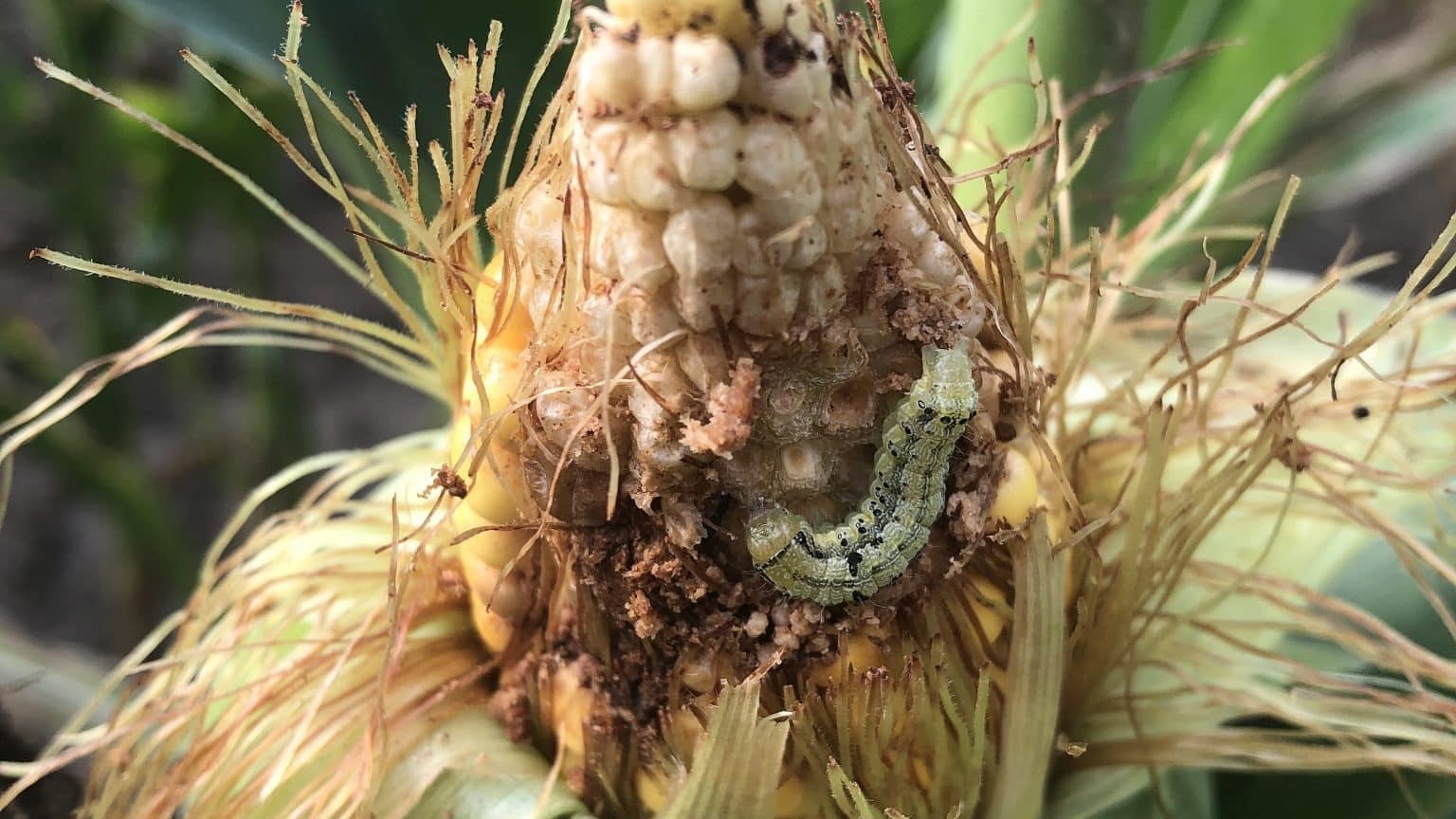According to a recent study from North Carolina State University, soil temperature can be used to efficiently track and forecast the movement of the corn earworm (Helicoverpa zea), a significant pest that decimates vegetable crops, such as corn, cotton, soybeans, peppers, and tomatoes.
 Corn earworm attacks a corn plant. Image Credit: Anders Huseth, NC State University
Corn earworm attacks a corn plant. Image Credit: Anders Huseth, NC State University
Farmers may be able to more successfully control the insect, lowering the costs and negative effects of pesticide use, if they can better control the pest and anticipate where it will develop.
To help comprehend “overwintering success,” or how well the pest can live underground during the colder winter months, the scientists merged historical soil temperature data with protracted corn earworm monitoring information and data on how the pest sustains cold temperatures in a laboratory environment.
The researchers assert that because the insect may migrate over great distances, increased overwintering effectiveness may widen the places where it can dwell and grow. On average, this pest's likelihood of crop damage is increased further north because of its better overwintering success in more northern latitudes. Progress in overwintering is also affected by climate change.
There is a preconceived notion that pests have little overwintering success north of 40 degrees latitude. That may have been true in the 1930s, but now we have more data-guided evidence to ask and answer the question, ‘Where can this species actually overwinter?’
Douglas Lawton, Study Co-Corresponding Author and Former Postdoctoral Researcher, North Carolina State University
The research was published in the Proceedings of the National Academy of Sciences.
Researchers created their own maps, overlaying the three different sets of data to demonstrate three specific geographic zones: a “Southern Range” area where pests sustain over the winter months, a “Northern Limits” area where pests are typically unable to sustain during colder months, and a “Transitional Zone” within the northern and southern regions where pests may stay alive.
The study shows that 40° latitude is not the best conference for overwintering accomplishment.
“These areas are biologically relevant and supported through studies in the lab and the academic literature,” Lawton said.
The researchers to illustrate historical maize earworm trends utilized the three zones, and they later developed a model to project pest spread until the end of the century. Surprisingly, since 1981, the Southern Range has grown by 3%.
According to the predictions, the Southern Range will grow twofold by the end of the century and move firmly to the north, while the other two zones will contract.
As the climate changes, the overwintering zones are likely to shift northward.
Anders Huseth, Study Co-Corresponding Author and Assistant Professor, Entomology, North Carolina State University
The results demonstrate that Minnesota did not succeed with corn earworm overwintering from 1950 to 2021 due to its severe winters. However, according to predictive analytics, the entire region will be firmly in the Transitional Zone by the end of the century.
“This is the canary in the coal mine for agricultural pests. Making sense of what is taking place with this pest is important for agricultural producers. We have shown here the element of uncertainty that can have demonstrable effects on farmers and potentially new opportunities for pesticide resistance selection. Our models visualize that change and provide touchstones for pest management,” Huseth said.
“Now we’d like to come up with a better forecasting tool for this pest, along with a risk-prediction model, to give growers better information about pest spread. Success here could reduce both costs for farmers and pesticides into the environment.”